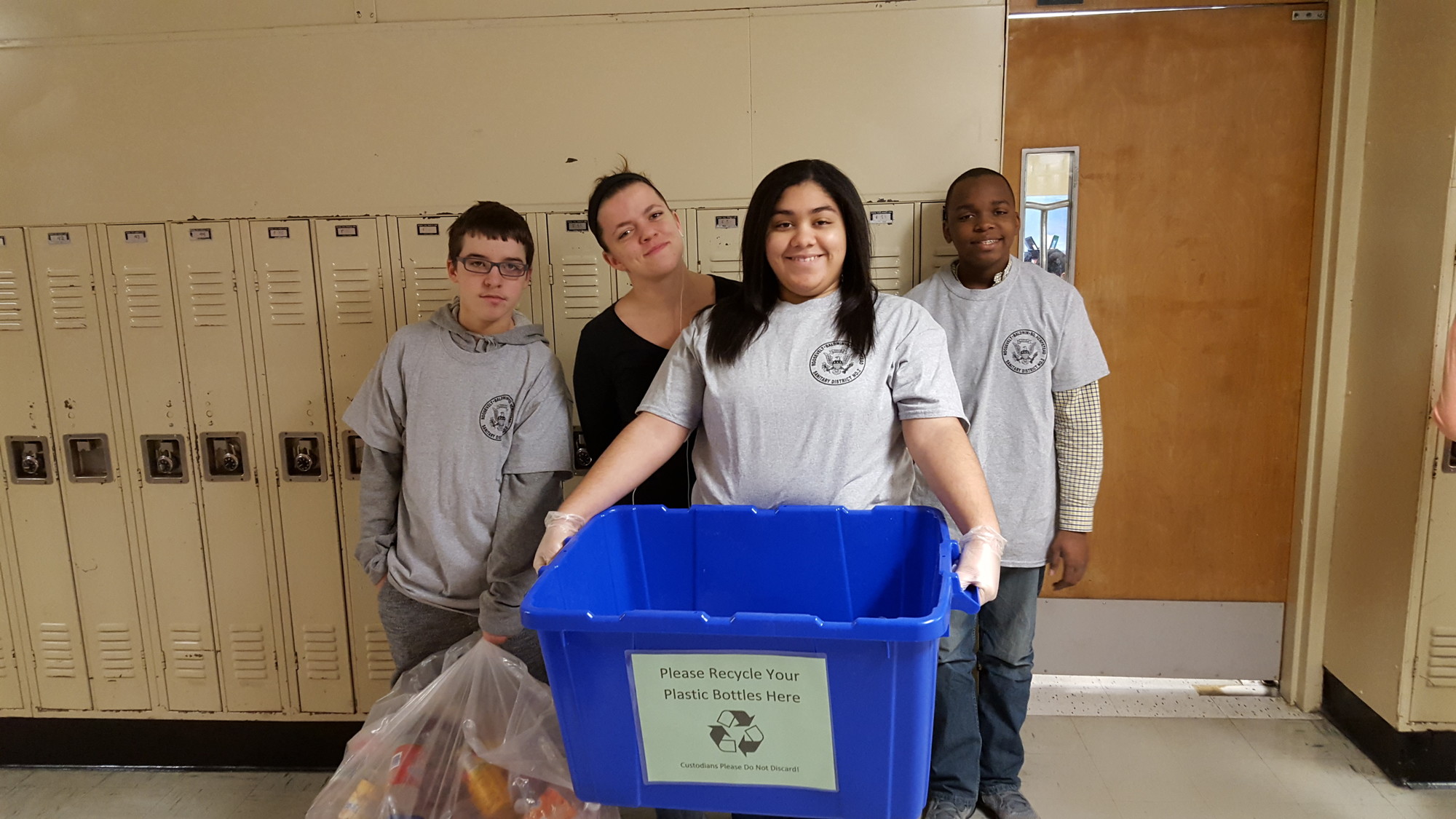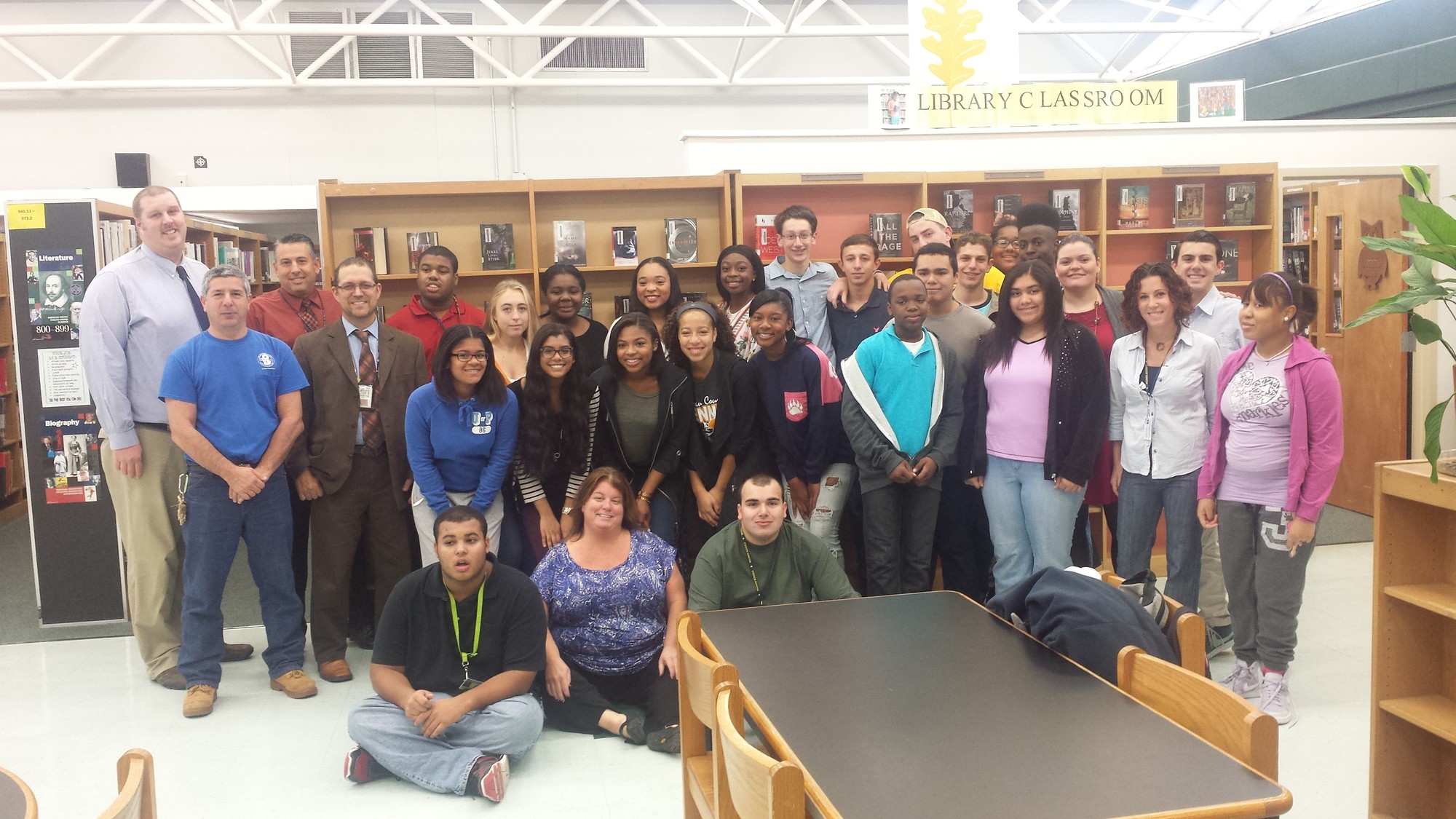No waste
From small start, recycling program grows to include entire high school
Baldwin High School senior Tionna Johnson was at a meeting of the Baldwin Civic Youth Council when she had a brainstorm: Why couldn’t her school set up a recycling program.
“I wanted to see what I could do to make Baldwin a better place,” she said.
She presented her idea to the leaders of the council, and eventually it made its way to the office of Principal Susan Knors. Knors, in turn, suggested that Craig Tupot, dean of students, Gregg Kelley and Jenn Raleigh, teachers and advisers to the Future Business Leaders of America, special education teachers Colleen Fitzpatrick and Kelly Snow, and family and consumer science teacher Samantha Billig form a committee to determine how to proceed.
From that humble idea came a project that has grown to encompass not just the entire school but the community at large, including the Life Skills students, who now find they have a special role to play.
The first order of business: put recycling bins in classrooms throughout the High School. To accomplish that, Johnson and student Daniela Peralta-Santana spoke at a faculty meeting in a bid to bring teachers on board.
The result: more than half of the classrooms in the building have bins.
But then it the campaign grew to encompass Sanitary District No. 2, who provided the bins, and best of all, t-shirts.
By October, the effort was in full swing with the recycling of plastic bottles.
The FBLA students, including Tionna, have taken over management of the program, while the Life Skills students collect the bins each week for Sani 2 to pick up and recycle.
Sani 2 Commissioner LeRoy Roberts credits the kids with the whole program. “We went there and met with them, they introduced us to kids,” he said. At first, the students asked for boxes for their collections but the Sani2 board of commissioners later decided to provide the bins.
Roberts said he hoped to start a program where the kids will learn to weigh their collections; that way, they’ll be able to track their progress. “It would be interesting for them to say, ‘Well, we started out collecting 300 pounds, now we’re up to 600 pounds,’” he said.
But that will come later. “They’re in the infant stages of their program,” Roberts said. “Once a week we pick up. Then we put it in our truck and bring it over to our vendor.”
The organization sounds easy, but it wasn’t. Recycling programs had been tried before in the school, but had never taken off. This time around however, even a few teachers who were reluctant at first, now embrace the program.
““We’ve tried to push recycling for years in the high school,” Roberts said. ”These kids stepped up.”
Later, those involved in the program hope to expand beyond plastic bottles. “Everyone has asked us about other recyclables,” said Tupot.
The instructors all say the program is now a part of the school. “It’s become part of the culture,” Kelly said.









